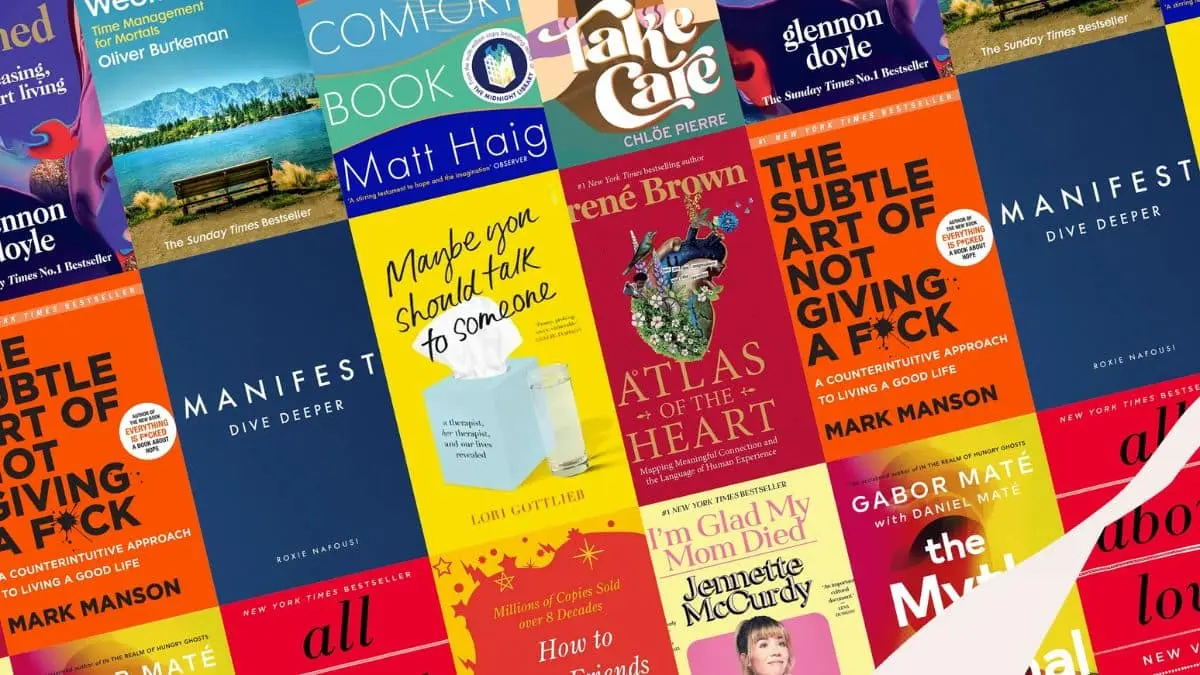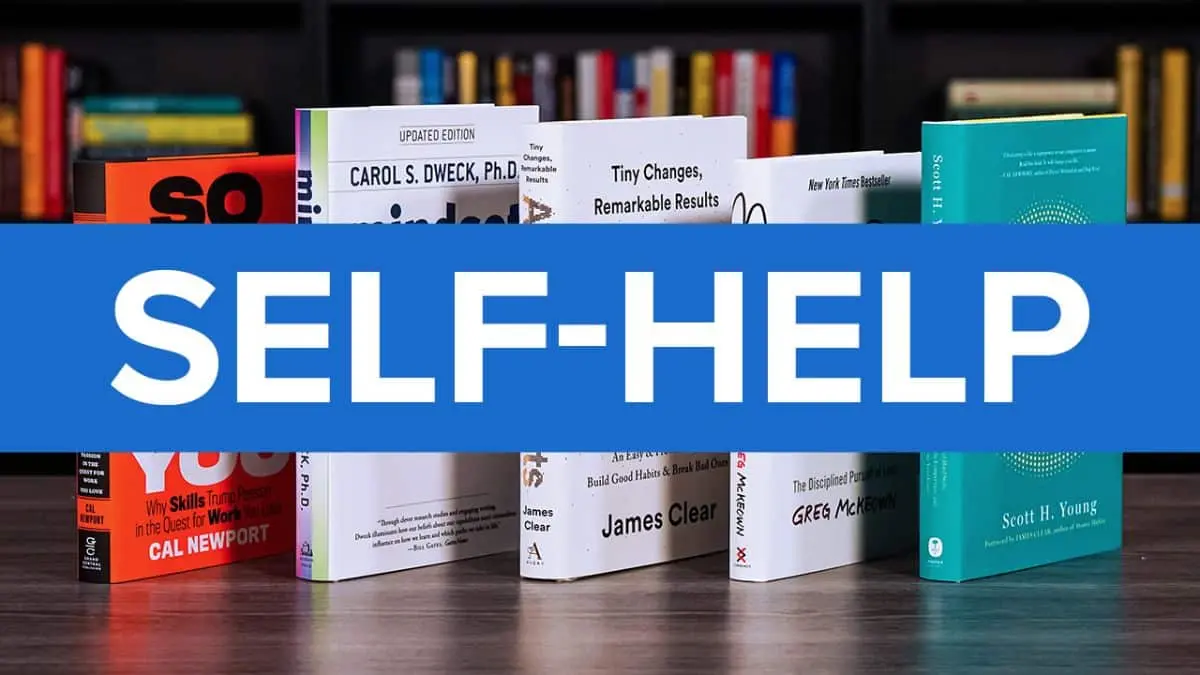- Self-help Books often contain relatable stories and actionable advice that inspire readers to take action towards their …
- Books like self help can enhance readers’ empathy by exposing them to the diverse experiences and inner lives of o…
- Self-help books often prompt introspection, encouraging readers to reflect on their life, behaviors, and beliefs.
- Many self-help books focus on the art of building and maintaining healthy relationships.
- Adopting a positive outlook on life is another significant benefit of reading self-help books.
- Self-help books often serve as catalysts for setting and achieving personal and professional goals.
In the fast-paced world we live in, self-improvement has become more than just a buzzword; it’s a necessary aspect of living a fulfilled life. Among the myriad ways to embark on the journey of personal growth, reading self-help books stands out as a profoundly impactful method. These books are not just collections of advice but are beacons of enlightenment that guide readers through their journey towards self-improvement. Below, we delve into the reasons why engaging with self-help literature is beneficial, accompanied by examples of influential books that have changed lives.
why reading self help books is good
1. Expanding Knowledge and Perspectives
Self-help Books are a rich source of wisdom accumulated from years, if not decades, of research, experience, and insights from thought leaders and experts. They provide readers with the opportunity to see the world through a different lens, challenging preconceived notions and expanding their understanding of what is possible.
Example: “Thinking, Fast and Slow” by Daniel Kahneman
This groundbreaking book delves into the two systems that drive our thoughts: the fast, intuitive, and emotional; and the slower, more deliberative, and logical. Kahneman’s insights into decision-making and behavioral economics provide readers with the tools to understand their thought processes better, leading to improved decision-making skills.
2. Boosting Motivation and Inspiration
Reading about others’ successes, failures, and the resilience they demonstrated can serve as a powerful source of motivation. Self-help Books often contain relatable stories and actionable advice that inspire readers to take action towards their goals.
Example: “The 7 Habits of Highly Effective People” by Stephen R. Covey
Covey’s book is a masterpiece in the self-help genre, offering a principle-centered approach for solving personal and professional problems. Through poignant anecdotes and insights, the book inspires readers to live a life of integrity, service, and dignity.
3. Enhancing Mental Health and Emotional Well-being
Many self-help books focus on strategies for dealing with stress, anxiety, depression, and other mental health issues. They offer practical advice on cultivating a healthier mindset, improving emotional intelligence, and building resilience.
Example: “The Subtle Art of Not Giving a F*ck” by Mark Manson
Manson’s book takes a blunt, counterintuitive approach to living a good life by arguing that learning to let go of the pursuit of positivity enables us to find clarity and happiness. It’s a refreshing take on embracing our limitations and the challenges we face.

4. Developing New Skills and Habits
Self-help books often serve as manuals or guides that provide step-by-step instructions for developing new skills or habits. Whether it’s learning to communicate more effectively, manage time better, or become more organized, these books can be invaluable resources.
Example: “Atomic Habits” by James Clear
Clear’s book offers a comprehensive guide to breaking bad behaviors and adopting new, positive ones. Through a series of small changes, readers learn how to make big improvements in their lives, emphasizing the compound effects of tiny habits over time.
5. Fostering Empathy and Understanding
Books like self help can enhance readers’ empathy by exposing them to the diverse experiences and inner lives of others. This deepened understanding of human psychology and behavior can improve interpersonal relationships and social skills.
Example: “How to Win Friends and Influence People” by Dale Carnegie
Carnegie’s classic book teaches the fundamentals of understanding people, winning them over, and influencing their behavior in a positive way. It’s as much a book about personal development as it is about enhancing one’s social skills and empathy.
6. Encouraging Self-Reflection and Awareness
Self-help books often prompt introspection, encouraging readers to reflect on their life, behaviors, and beliefs. This introspective process can lead to heightened self-awareness, which is crucial for personal growth and self-improvement.
Example: “The Road Less Traveled” by M. Scott Peck
Peck’s book starts with the profound truth that “Life is difficult,” and builds on this premise to explore the nature of personal growth and how to achieve it. The book encourages readers to confront and resolve their problems through discipline, love, and grace, leading to a deeper understanding of themselves.

7. Improving Relationships
Many self-help books focus on the art of building and maintaining healthy relationships. Whether it’s romantic relationships, friendships, or professional connections, these books offer insights into effective communication, empathy, and mutual respect.
Example: “The 5 Love Languages” by Gary Chapman
Chapman introduces the concept of love languages and how understanding and speaking your partner’s love language can transform relationships. It’s a simple but profound insight into how people give and receive love differently, fostering better communication and stronger bonds.
8. Cultivating a Positive Mindset
Adopting a positive outlook on life is another significant benefit of reading self-help books. These books often provide strategies for overcoming negative thinking patterns and focusing on the positive aspects of life, leading to improved mental health and well-being.
Example: “You Are a Badass” by Jen Sincero
Sincero’s book is a refreshing, humorous guide to owning your awesomeness, embracing your fears, and living your best life. It encourages readers to stop doubting themselves and start living an incredible life with a positive mindset.
9. Enhancing Financial Literacy
Some self-help books are dedicated to improving financial literacy, offering advice on managing finances, investing, and building wealth. These books demystify financial concepts and provide practical strategies for achieving financial independence.
Example: “Rich Dad Poor Dad” by Robert T. Kiyosaki
Kiyosaki’s book contrasts the financial philosophies of his two fathers: his biological father, who was “poor,” and the father of his best friend, the “rich dad.” Through this narrative, he discusses the importance of financial education, investing, and building wealth through entrepreneurial ventures rather than traditional employment. This book has inspired many to rethink their approach to money and investing.

10. Nurturing Creativity and Innovation
Creativity is not just for artists; it’s a crucial skill in many aspects of life and work. Self-help books that focus on nurturing creativity can unlock innovative thinking, problem-solving skills, and the ability to see opportunities where others see obstacles.
Example: “Big Magic: Creative Living Beyond Fear” by Elizabeth Gilbert
Gilbert explores the mysteries of inspiration and creativity, offering insights into overcoming fear and other obstacles that hinder creative expression. “Big Magic” encourages readers to live creatively, embrace curiosity, and bring forth the treasures hidden within.
11. Achieving Goals and Realizing Dreams
Self-help books often serve as catalysts for setting and achieving personal and professional goals. They not only inspire but also offer practical advice on planning, goal setting, and overcoming the barriers that prevent us from realizing our dreams.
Example: “The 4-Hour Workweek” by Timothy Ferriss
Ferriss challenges the traditional 9-5 work paradigm and offers readers a blueprint for escaping the rat race, experiencing high-end world travel, and living more and working less. This book is particularly appealing to those looking to design their lifestyle and achieve their dreams without being tied down by conventional work schedules.
Also Read: How Authors Can Generate Income from Their Published Books



